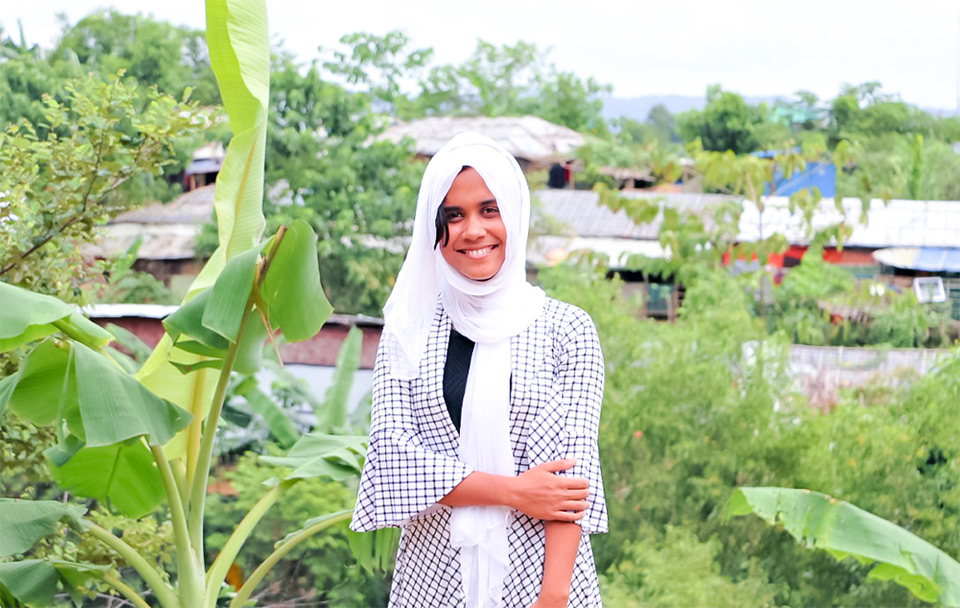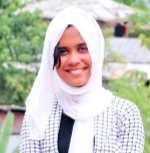Lucky's blog
“My ability to study and work shouldn’t be based on ‘luck’.”
Date: Monday, December 21, 2020
Author: Lucky

As it has for many people, the coronavirus pandemic has changed my life. I’m struggling more to continue to study online from the camps as I am more confined to my parents shelter. I’m not meeting my friends; I’m working to spread awareness of the virus in my community.
Still, you can call me Lucky. That’s my name, and I am lucky. My life has been full of opportunities that most girls in my refugee community, in Cox’s Bazar in Bangladesh, don’t get.
At 18, more and more I see Rohingya girls my age and younger getting married off instead of going to school or work. While my parents have defended my right to an education, families around us are increasingly pushing their daughters into child marriage. At the ages of even 12, 13 and 14, many girls are being forced to marry. Too many of them don’t understand what is happening and they don’t understand they should have a choice.
Child marriage puts girls at increased risk of violence, and places barriers in their way to study or work. And they don’t know how to take proper care of their husbands and children.
As a volunteer with the UN World Food Programme, I visit families every day throughout the refugee camp. I see that in some neighborhoods boys and girls are getting the same opportunities. But in many others, they are not. There are still people who believe girls shouldn’t go to school or leave their shelters.
A friend of mine got married when she was 14. She doesn't know how to take care of her baby. And since she had the baby she has been suffering a lot because of her husband. Her husband is an educated boy but he has no opportunity to earn any money. Finally he left my friend and is staying with his father in another camp. But my friend doesn't have an elder brother and a father, and it is very difficult for her mother to take care of her as she has three younger sisters. I feel very sad and worried about her.
Child marriage is increasing because there is not enough education. Getting married at a young age is not part of our culture but uneducated parents are not allowing the girls to study and forcing them to get married.
I think we should speak out more and explain them why it is important for girls to wait till they are and 18 and their bodies are ready. The opportunity does not come all the time, and without education, we are nothing. If every girl had the opportunity to learn and to go to school to improve themselves, then child marriage would be reduced.
There are women and girls who are too afraid to raise their voices. We must raise our voices and deliver the message to the right people so that they can understand how we can remove such violence from our community.
My ability to study and work shouldn’t be based on luck. I believe it’s extremely important for every girl in every family to be educated, to be happy, and to be given time to get married.

Lucky, 18, fled to Cox’s Bazar in August 2017 from armed conflict in Rakhine State in Myanmar. She is now studying politics, philosophy and economics remotely from the refugee camps in Cox’s Bazar, as a student at Asian University for Women, which is located in Chittagong, near Cox’s Bazar. Lucky has worked as a volunteer for UN Women and other organizations, is participating in civil society groups seeking to end gender-based violence, and is promoting girls’ education in her community. In the future, she wants to be a political leader. Lucky’s story demonstrates United Nations Sustainable Development Goal 16 on promoting peaceful and inclusive societies, and Goal 5 on gender equality and women's empowerment.